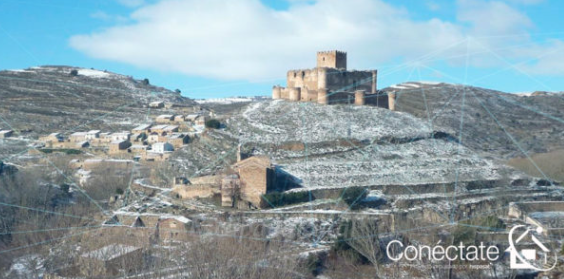The contest was held in March and now the results are in and the sponsor, Hispasat, has announced the winners.

The municipality of Magaña in the province of Soria has won the #enREDatupueblo contest held by Hispasat in March for Spanish municipalities or singular population entities (ESP) with fewer than 800 inhabitants located in remote and sparsely populated areas in Spain where there is low quality Internet access or no Internet access at all. Magaña was very active in their search for support and received 1,835 votes, compared to the 861 which went to Valle de Manzanedo and the 829 which went to Aracena.
For one year Magaña will receive free satellite Internet access at 30 Mbps for its residents, homes and businesses, in addition to the installation and servicing of the network.
Social network users and those who visited the Conéctate project website at www.hispasatconectate.es voted for the winning town among the three finalists.
Carlos Espinós, CEO of HISPASAT, said that they would like to congratulate Magaña’s mayor, Fernando Marín, and all of its residents for the hard work and dedication they put in to win this contest and connect for the very first time to the network of networks through a quality connection. In spite of Magaña’s small size, its residents were able to mobilize and increase their votes twentyfold bringing Hispasat great joy to be able to connect them to the digital world and they hope that satellite connectivity allows them to grow, develop and become part of the Information Society.
Magaña is a very small municipality with only 79 inhabitants located in the Tierras Altas region, in the northeastern part of the province of Soria. Mayor Fernando Marín, on behalf of the residents of the town, expressed his excitement, saying they are very happy to have made their dream come true. It was the dream of all residents of this town, who will finally see an improvement in their communications that will positively impact their businesses. With this new service they are hopeful that their self-employed residents will see an increase in their work, that their health system will be strengthened, that their cattle farms will be improved... an endless amount of opportunities that they want their young people to take advantage of to help their town grow.
The mayor has thanked Hispasat and all of the people who have provided their support in helping Magaña win this prize. He said that he would especially express his gratitude to the El Hueco center of entrepreneurship and the Soria Forestry Association for their collaboration. Both organizations understood the potential of rural development through this initiative and helped them promote their candidature.
The town council of Magaña entered the contest with a creative video in which they explained the improvements satellite connectivity would bring to different aspects of the town in the future if they won. See "Un año después en Magaña" (“One year later in Magaña”) at:
A total of twenty-five towns from all over Spain entered the contest, of which only 14 met all of the requirements established by the organization: Almonaster La Real (Huelva), Aracena (Huelva), Boadella i Les Escaules (Girona), Fasnia (Santa Cruz de Tenerife), La Herguijuela (Ávila), Linares de Mora (Teruel), Magaña (Soria), Oliete (Teruel), Orea (Guadalajara), Rivilla de Barajas (Ávila), Uclés (Cuenca), Valle de Manzanedo (Burgos), Vilapoupre (Lugo) and Yernes y Tameza (Asturias).
Once the deadline for presenting the projects had passed, a selection committee chose three finalists (Aracena-Huelva, Magaña-Soria and Valle de Manzanedo-Burgos) which were announced on May 17 to coincide with Internet Day. From that date until May 27, social network users and those who visited the Conéctate project website were able to vote for the winning town.
This contest aims to show how satellites can be the solution to the lack of connectivity in remote or sparsely populated regions, a problem that is quickly solved through satellite technology, which is now available in the same quality and price as that of terrestrial networks. As such, satellites are an ideal alternative to bring broadband connectivity to areas where other technologies do not reach.
The dates for the installation of the antennas and the activation of broadband service in the winning town will soon be announced.

